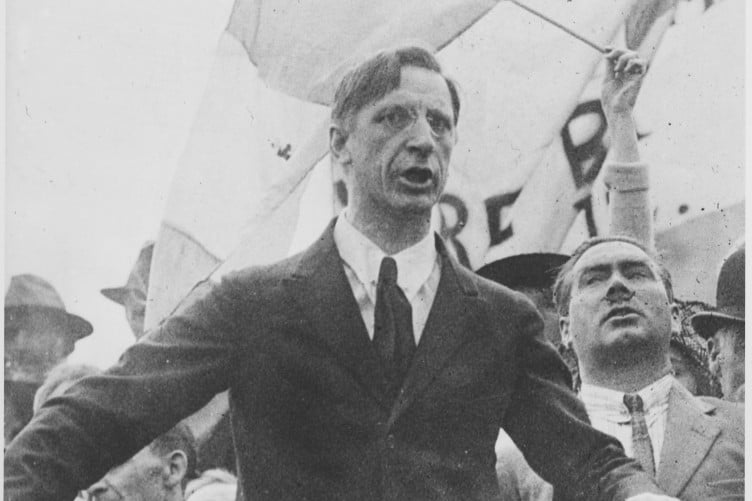Although the Republic of Ireland remained neutral during World War II, it came under intense pressure from Britain over access to ports located in the Republic which had only a few years previously been handed back by the British. The Republic’s denial of these ports came at a cost, as Britain imposed economic sanctions by way of punishment, which resulted in the country’s economy stagnating as well as extreme hardship for its people for the duration of the war.
The outbreak of the Second World War provided the recently established Irish state with a platform to assert its sovereignty to the wider international world. By displaying an independent foreign policy, and one which differed from Britain’s, Ireland sought to stand apart from its imperial neighbor. The Taoiseach (Prime Minister of the Republic of Ireland), Eamon de Valera opted for a policy of Irish neutrality during World War II. He did so not only because it reflected the wishes of the overwhelming majority of the Irish people, but to set the Republic apart from the other dominions of the British Commonwealth who had all followed Chamberlain’s lead by declaring war against Germany.
The decision was made against a backdrop of an ongoing territorial dispute over the partition of the country as a result of the Government of Ireland Act on May 3, 1921, which saw the creation of two separate states on the island of Ireland, namely Northern Ireland and the Irish Free State. De Valera also believed that Irish involvement in the war would lead to conscription and that the resistance it would create could strengthen support for the Irish Republican Army (IRA), which he had outlawed in 1936.

ADVERTISEMENT - CONTINUE READING BELOW
From the outset of Fianna Fail’s accession into government in 1932, the party, under de Valera’s leadership, set about revising the Anglo-Irish Treaty of 1921 out of existence. In April 1932, the government passed the ‘Removal of Oath Bill’ which ended the requirement of Irish ministers to swear an oath of allegiance to the British King to take seats in parliament. The Office of the Governor-General was also abolished, effectively removing the British King from the Free State constitution. The signing of the Anglo-Irish Agreement on Finance, Trade and Defence in 1938, and more specifically the handing back of the ‘Treaty ports’ of Berehaven, Cobh, and Lough Swilly proved to be a crucial pre-war development.
Irish control over these ports in the face of mounting pressure from the British government became the main contentious point between the two countries during the early years of the war. The significance of the return of the ‘Treaty ports’ to the Republic was not lost on one lone voice in the British House of Commons, where on 5 May 1938, Winston Churchill foresaw the possibility that upon the outbreak of a Great War that “the ports may be denied us in the hour of need.”

